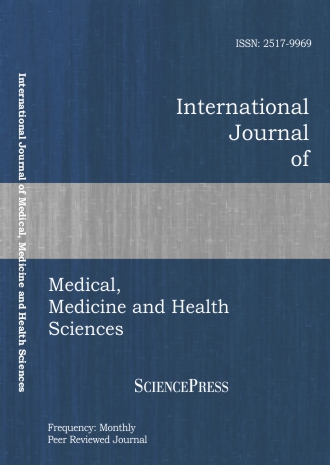
Scholarly
Volume:13, Issue: 5, 2019 Page No: 227 - 230
International Journal of Medical, Medicine and Health Sciences
ISSN: 2517-9969
70 Downloads
Investigation of the Relationship between Exam Anxiety and Binge Disorders in High School Students in the 15-19 Age Range
Eating disorders are mental health disorders as a result of disruption of the diet. This study was conducted to examine the relationship between exam stress and binge eating disorder in high school students. The study was conducted in March 2018 with 60 high school students (31 females, 29 males) aged 15-19 years. Personal characteristics and eating habits of individuals were measured by using a questionnaire prepared by the researcher. The binge eating disorder status of the individuals participating in the study was determined by the Bulimic Investigatory Test Edinburgh (BITE); test anxiety status was determined by Revised Exam Anxiety Scale. Statistical analysis of the data obtained from the study was done by IBM SPSS Statistics 23 program. While there was no significant relationship between the points obtained from the Bulimia Research Test Edinburgh and the consumption of something after the dinner (p > 0.05), there was a significant relationship with need to eat when stressed (p < 0.05). It is seen in 43.3% of individuals that there is no binge eating disorder, but abnormal eating behavior is observed. In 8.3% of the students, binge eating disorder (BED) was seen. No significant difference was found between male and female students in terms of BED (p > 0.05). It was determined that 60% of the participants who have BED had a medium level of anxiety and 40% had a high level of anxiety. A significant relationship was found between BITE and revised test anxiety (RTA) scale scores (p < 0.05). However, the relationship between the need for eating and the BMI and RTA scores were not significant (p > 0.05). In the study, the desired parameter was positive; there was a positive relationship between the BED and the test scores. In this period which is the starting time of dietary issues and different mental issues, for example, youthfulness, there should be regular trainings on the methods of coping with anxiety and on the principles of healthy nutrition in order to prevent health problems.
Keywords:
References:
[1] Baysal A (2014) Beslenme. 15.Baskı.Hatiboğlu Yayıncılık,Ankara,: 9